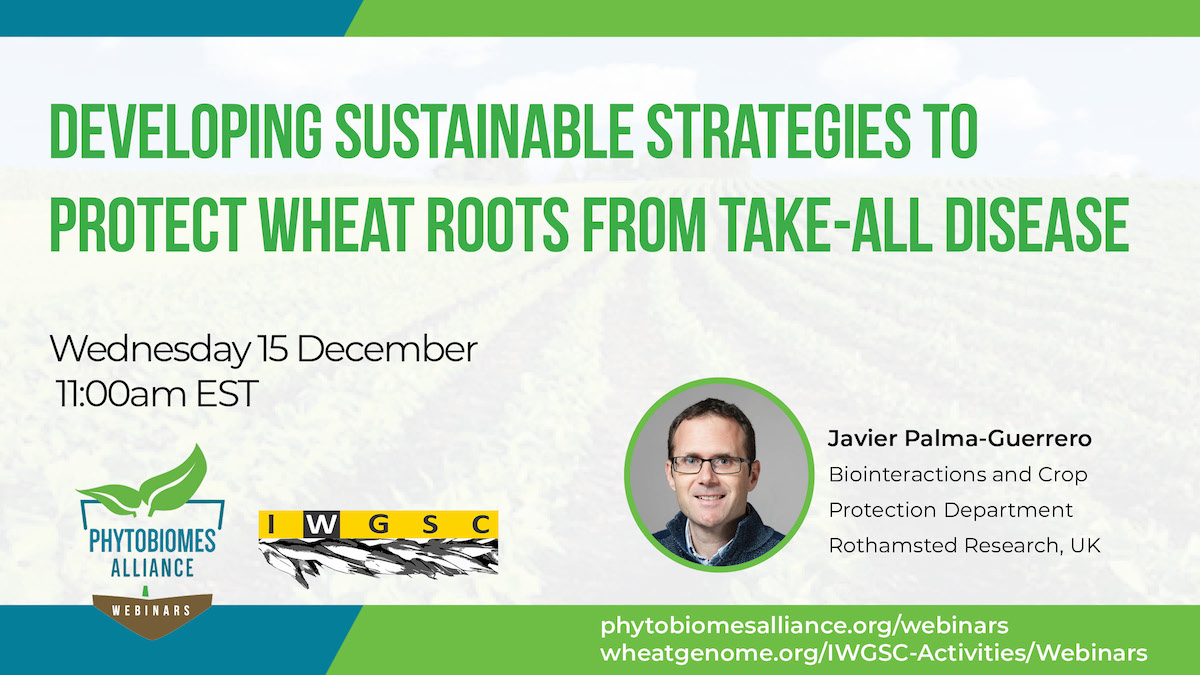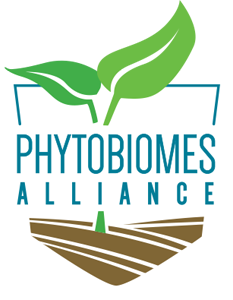
Developing sustainable strategies to protect wheat roots from take-all disease
December 15, 2021
Presenters
Javier Palma-Guerrero
Biointeractions and Crop Protection Department, Rothamsted Research, UK
Outline
Roots are essential plant organs constantly in contact with the soil microbiome, which consists of both beneficial and pathogenic organisms. These rhizosphere interactions have a strong effect on plant health, influencing both yield and product quality. Take-all disease, caused by the soilborne fungus Gaeumannomyces tritici, is the most important disease of wheat roots worldwide. The fungus also infects other cereals including barley, rye, and triticale. The disease has a potentially damaging impact on the environment, by reducing Nitrogen uptake from wheat roots, which can result in higher greenhouse gas emissions as well as the contamination of surrounding water sources. Take-all is particularly problematic after successive planting of susceptible crops, allowing fungal inoculum to build up in the soil. Interestingly, different wheat varieties have been found to differ in their take-all build-up capacity, which is associated with changes in the soil microbiome.
In this webinar, I will describe the recent advances in take-all research that have contributed to improving our understanding of the pathosystem and its interacting components. I will cover the identification of new sources of genetic resistance to take-all from wheat ancestral relatives and other take-all resistant cereal crops, the role of the soil microbiome in the disease outcome, and the potential of closely related fungal species in disease suppression. These advances, together with the new genomic tools available, set this pathosystem as a promising model to study the multi-kingdom interaction between wheat roots, the pathogen, and the rhizosphere microbiome.
USEFULL REFERENCES
- Palma-Guerrero J, Chancellor T, Spong J, Canning G, Hammond J, McMillan VE, Hammond-Kosack KE (2021). Take-all disease: new insights into an important wheat root pathogen. Trends in Plant Science, doi:10.1016/j.tplants.2021.02.009
- McMillan VE, Canning G, Moughan J, White RP, Gutteridge RJ and Hammond-Kosack KE (2018). Exploring the resilience of wheat crops grown in short rotations through minimising the build-up of an important soil-borne fungal pathogen. Scientific Reports 8:9550, doi:10.1038/s41598-018-25511-8
- McMillan VE, Gutteridge RJ, Hammond-Kosack KE (2014). Identifying variation in resistance to the take-all fungus, Gaeumannomyces graminis var. tritici, between different ancestral and modern wheat species. BMC Plant Biology 14:212. doi:10.1186/s12870-014-0212-8
